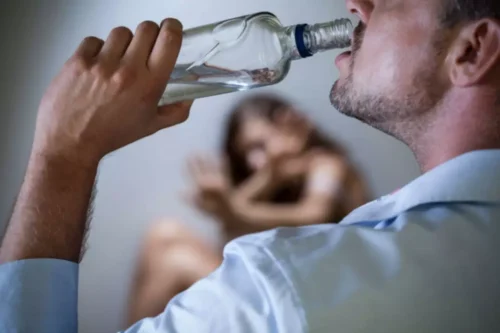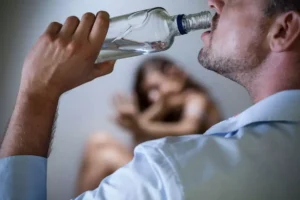
It’s also beneficial to consume electrolyte-rich fluids such as sports drinks or coconut water. Electrolytes help replenish the essential minerals lost due to alcohol’s diuretic effect. By replenishing electrolytes, you can help maintain proper muscle and nerve function, reducing the chances of experiencing severe shakes. When it comes to preventing hangover shakes, taking proactive measures before and during alcohol consumption can make a significant difference. By adopting moderation, practicing responsible drinking, and implementing hydration strategies, you can minimize the chances of experiencing debilitating hangover shakes. A balanced diet can help support your body’s recovery process and minimize the severity of hangover symptoms.

Prevention Strategies

It’s used by medical professionals to assess your risk for alcohol dependence. In short, alcohol shakes are usually part of a hangover and go away on their own, while DTs are a severe, medical emergency that requires immediate attention. DTs are a whole different beast and are a sign of severe alcohol withdrawal.
Eat foods rich in potassium.
These shakes are likely to be mild, short-lived and accompanied by other typical hangover symptoms like headache, nausea and fatigue. Providing nutritional support through a balanced diet can also aid in preventing and recovering from hangover shakes. Certain nutrients have been shown to be beneficial in alleviating hangover symptoms and supporting the body’s recovery process. Incorporating these nutrients into your diet how to get rid of the hangover shakes can help minimize the severity of hangover symptoms. Hangover shakes, also known as tremors, are characterized by involuntary trembling that occurs typically during a hangover. To alleviate hangover symptoms, hangover shakes are recommended as a natural and effective remedy.
- Electrolytes are minerals like sodium and potassium crucial for nerve and muscle function.
- Paracetamol is metabolised in the liver, and as that has likely taken a big hit the night before, it’s best not to put it under more stress.
- The timeframe can also vary from person to person, depending on how much alcohol is consumed and your body composition.
The Path Is Clear – Take Your First Steps Today with Clear Steps Recovery

But sometimes, those tremors can be a sign that something else is going on. The “shaky hand” phenomenon can be a telltale sign that someone drank the night prior. The employee comes to work, sits at their desk, and can’t put the coffee up to their lips without it feeling like an earthquake rattles beneath them. To that end, alcohol shakes are not interchangeable with delirium tremens but can be a subset symptom.
Why Do I Get The Shakes After Drinking Alcohol?
Replenishing lost fluids by drinking water or electrolyte-rich beverages can help alleviate the shakes. To combat alcohol-induced dehydration and reduce the likelihood of experiencing hangover shakes, it is crucial to maintain proper hydration. Drinking water or non-alcoholic beverages between alcoholic drinks can help replenish lost fluids. Be vigilant if you have a history of heavy drinking or alcohol dependence. In these cases, your body might react more strongly to the absence of alcohol, leading to more severe withdrawal symptoms, including delirium tremens.

- Make sure to get plenty of restful sleep after drinking alcohol to allow your body time to recover and heal.
- And by all means, avoid the sugar snacks that you’ll crave once you start detoxing.
- When normal activity resumes in your brain, this can bring on anxiety.
- The extract has a protein that curbs the inflammation you can get from drinking too much.
- According to Medical News Today, untreated DT can lead to death in 37% of cases.
Remember to stay hydrated and replenish electrolytes to support your body’s recovery process after a night of drinking. Hangover shakes are when you Sober living house experience uncontrollable tremors, usually in your hands, after a night of drinking. They are a physical sign of your body experiencing alcohol withdrawal symptoms – something everyone goes through after a night of heavy drinking. Understanding the causes of hangover shakes is essential in managing and preventing this uncomfortable symptom. Remember to always drink responsibly and be mindful of your alcohol consumption to promote overall well-being.

Psilocybin Trials Show Promising Addiction Treatment
- This can help counteract alcohol-induced dehydration and reduce the likelihood of experiencing hangover shakes.
- It’s struggling to adapt to the changing alcohol levels in the system.
- By focusing on rehydration, rest, and proper nutrition, you can effectively treat hangover shakes and facilitate your body’s recovery.
- Consuming fluids with electrolytes like coconut water can help restore hydration levels and improve symptoms.
- They usually kick in within a few hours of your last drink, as your body starts to process the alcohol and go into “withdrawal” mode.
- Implementing these measures might lead to better control of shaking symptoms induced by alcohol consumption.
Carbohydrates in food can help boost your blood sugar back to normal. Try bland foods that are easy on your stomach, like toast and crackers, and drink some juice. While most over-the-counter hangover remedies won’t help much, there’s one supplement that may do you some good – but you’ll have to plan ahead. Research shows that drinking about 7½ ounces helps lower blood alcohol levels and makes hangovers less intense. For almost as long as humans have had hangovers, we’ve tried to cure them with remedies that run the gamut, from vitamin B to pickle juice.
